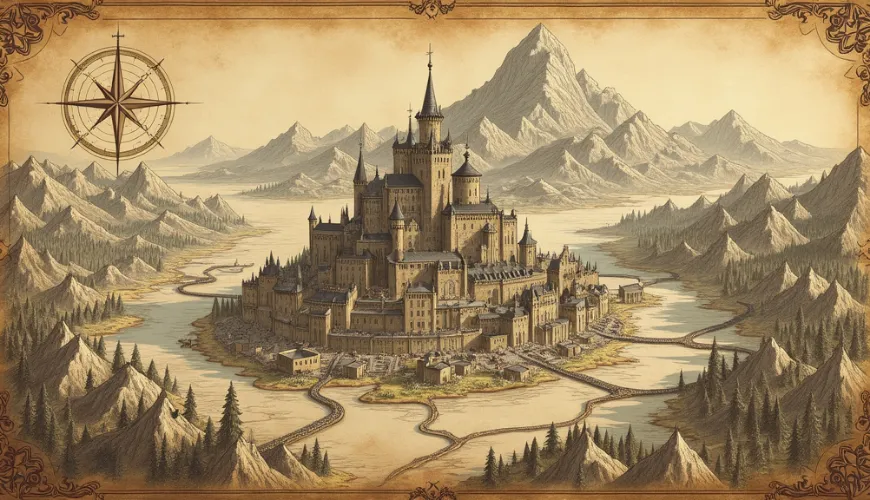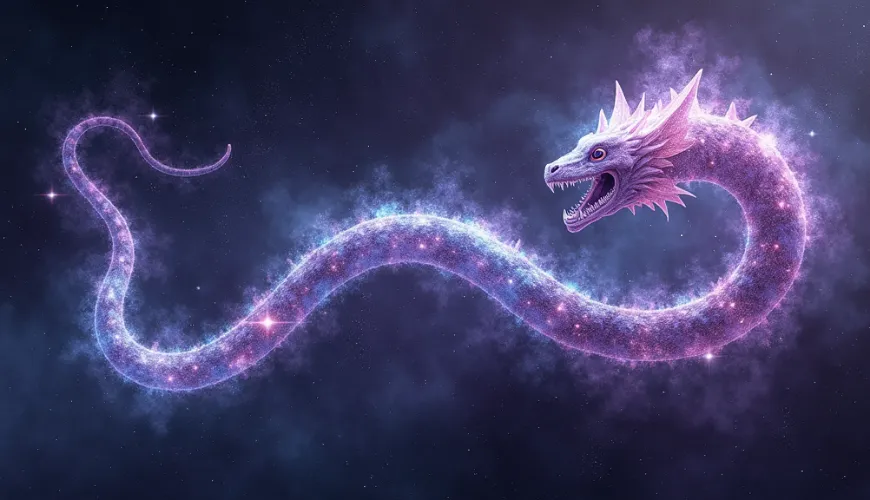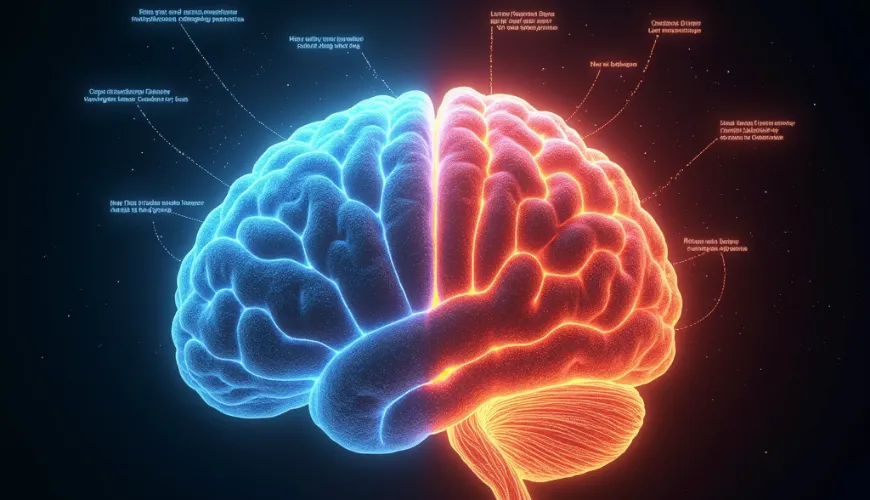With the advent of AI technology, creating stunning fantasy maps has become more accessible than ever. CLAILA's AI Image Generator stands out as a powerful tool for crafting detailed and imaginative fantasy maps. This comprehensive guide will walk you through the process of using this AI map generator to bring your fictional worlds to life.
CLAILA's AI Image Generator is a sophisticated tool within the CLAILA platform that allows users to create custom images based on text prompts. When it comes to generating fantasy maps, this tool excels at interpreting complex descriptions and translating them into visually appealing cartographic illustrations.
Getting Started with Fantasy Map Generation
Step 1: Accessing the AI Images Section
- Log into your CLAILA account
- Navigate to the AI Images section
- Choose your preferred image model settings
- Submit prompt
PRO TIP: Always use 'New image' when generating multiple versions of your fantasy map. Each new chat uses the unique seed parameter, helping maintain consistency in style and design rather than generating completely different results each time.
Step 2: Understanding Prompt Structure
Creating effective fantasy maps requires well-structured prompts. A good prompt typically includes:
- Map style and artistic direction
- Geographical features and terrain types
- Cultural elements and architectural styles
- Color palette preferences
- Level of detail desired
Essential Elements for Fantasy Map Prompts
Terrain Description
When crafting your prompt, consider including various terrain types:
- Mountains and hills
- Forests and woodlands
- Rivers and lakes
- Coastal areas and oceans
- Deserts and wastelands
- Plains and grasslands
Architectural and Cultural Elements
Include descriptions of:
- Cities and settlements
- Castles and fortifications
- Roads and trade routes
- Borders and territories
- Cultural landmarks
- Ancient ruins
Example Prompts for Different Map Styles
1. Classic Fantasy Kingdom
Generate a fantasy map in the style of classic medieval cartography, featuring rolling hills, dense forests, and majestic mountain ranges. Include a grand castle city in the center, surrounded by smaller villages connected by winding roads. Add decorative compass rose and elaborate border designs. Style: parchment texture, sepia tones, hand-drawn appearance, ink-style illustrations.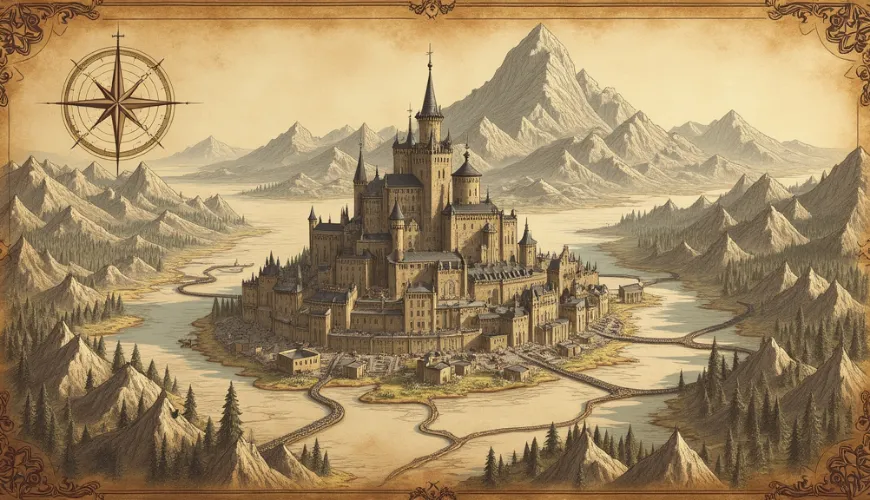
2. Mysterious Island Realm
Create an detailed fantasy island map with multiple volcanic peaks, tropical forests, and hidden coves. Include ancient ruins scattered throughout, mysterious standing stones, and treacherous reef areas around the coastline. Style: vibrant colors, watercolor effect, detailed topographical elements, mystical symbolism.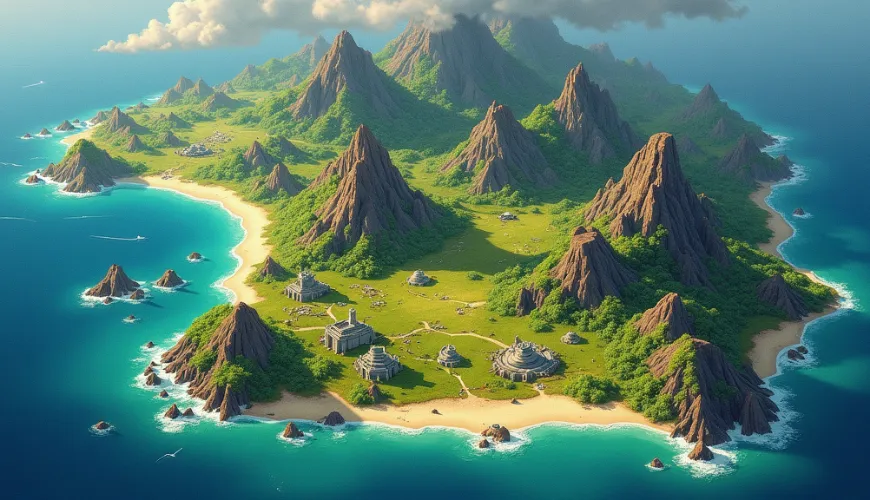
3. Arctic Fantasy Territory
Design a fantasy map of a northern realm with vast ice fields, frozen forests, and snow-capped mountains. Include indigenous settlements, ice caves, and magical aurora landmarks. Style: cool blue and white palette, crystalline textures, frost patterns as decorative elements.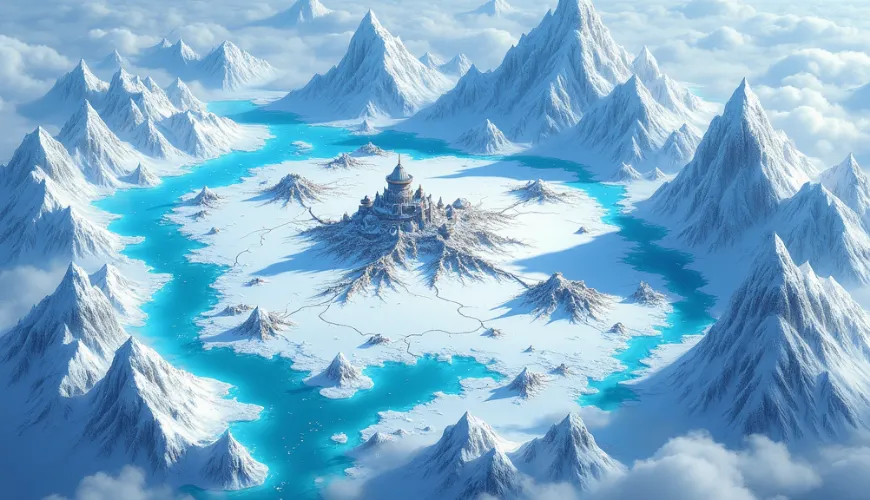
Advanced Techniques for Enhanced Results
Layering Geographic Elements
When creating complex maps, consider building your prompt in layers:
- Base terrain and major geographical features
- Secondary terrain elements and natural landmarks
- Civilizational elements and structures
- Decorative elements and styling
Example Advanced Prompt:
Generate a highly detailed fantasy map with multiple terrain layers: primary features include three parallel mountain ranges running north-south, with deep valleys between them. Secondary elements: dense pine forests in the valleys, highland meadows on the mountains' shoulders. Civilization layer: five major cities connected by ancient stone roads, with smaller settlements in the valleys. Style: detailed topographic shading, golden age of cartography aesthetic, rich earth tones with subtle color variations for elevation changes.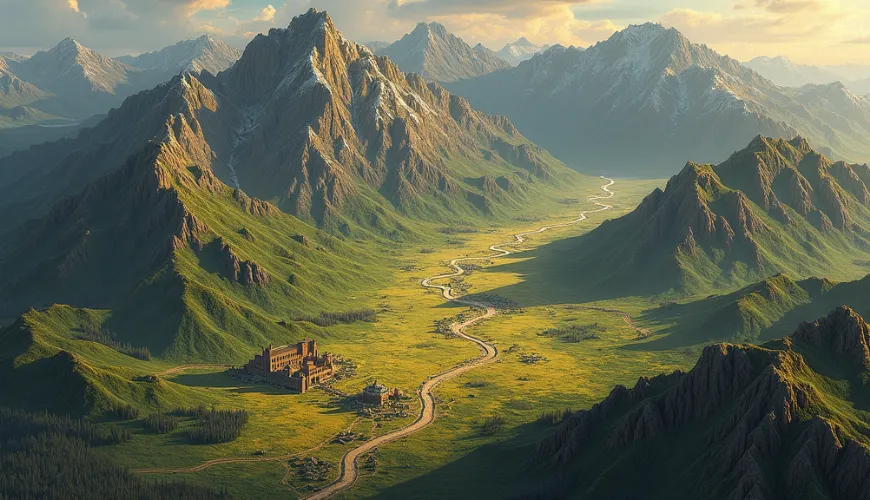
Incorporating Magical Elements
For fantasy worlds with magical elements, consider these additions:
- Magical ley lines
- Enchanted forests
- Mysterious portals
- Arcane academies
- Magical barriers
- Ancient power sources
Example Magical Realm Prompt:
Create a fantasy map showing a realm shaped by magic, featuring crystalline spires that emit magical energy, forests of glowing trees, and floating islands connected by bridges of light. Include magical academies marked by distinct symbols and ley line convergence points. Style: ethereal colors, glowing effects, mystical symbols, arcane geometric patterns in the border design.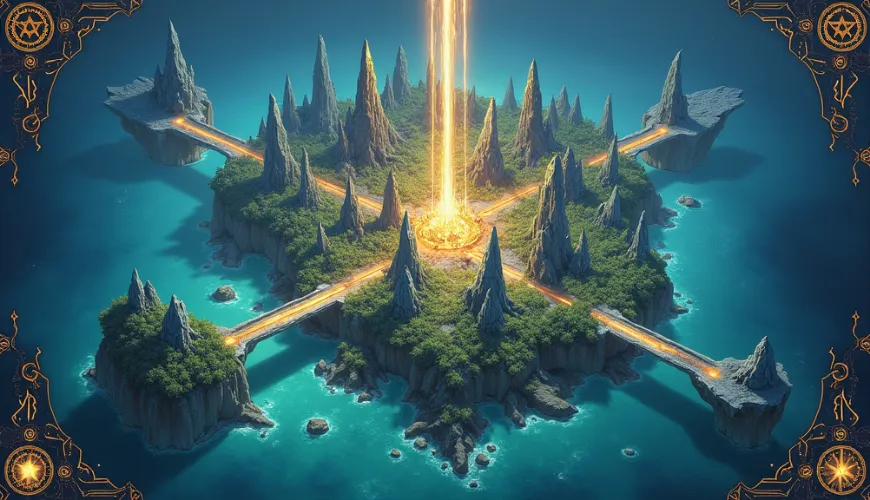
Tips for Optimal Results
1. Clarity and Specificity
- Use clear, descriptive language
- Specify exact features you want
- Include precise positioning details
- Mention preferred art style explicitly
2. Balancing Detail Levels
- Start with major features
- Add medium-scale details
- Include fine details last
- Maintain consistent scale
3. Iterative Refinement
- Generate initial versions
- Identify areas for improvement
- Adjust prompts accordingly
- Save successful prompts as templates
Common Challenges and Solutions
Challenge 1: Inconsistent Scale
Solution: Include specific scale references in your prompt and mention relative sizes of features.
Example:
Generate a fantasy map with consistent scale: mountain ranges spanning 100 miles, cities 20 miles apart, and forests covering areas 30 miles wide. Include a scale bar and distance markers between major locations.Challenge 2: Cluttered Layouts
Solution: Prioritize elements and specify clear hierarchy in your prompt.
Example:
Create a fantasy map with clear hierarchical layout: three major cities (larger symbols), seven towns (medium symbols), and twelve villages (small symbols). Maintain ample spacing between settlements and ensure text labels don't overlap.Advanced Applications
1. Regional Maps
For detailed regional maps, focus on specific areas with greater detail:
Generate a detailed regional fantasy map focused on a coastal trading hub, showing intricate harbor layouts, defensive walls, merchant districts, and surrounding farmland. Include detailed topography of nearby hills and river deltas. Style: architectural detail, trade route markers, maritime symbols.2. World Maps
For larger-scale worlds, emphasize continental features:
Create a fantasy world map showing multiple continents with distinct biomes, major mountain ranges, ocean currents, and climate zones. Include prehistoric ruins, ancient borders, and legendary locations. Style: globe projection, detailed terrain shading, climate indication through color gradients.Best Practices for Map Series
When creating a series of related maps:
- Maintain consistent styling
- Use similar color palettes
- Keep scale relationships accurate
- Reference common landmarks
- Use matching decorative elements
CLAILA's AI Image Generator offers an incredibly powerful tool for creating fantasy maps that can enhance any creative project, from novels to role-playing games. By understanding how to structure your prompts and utilizing the various features available, you can create stunning, detailed maps that bring your imaginary worlds to life.
Remember that the key to success lies in clear communication with the AI through well-structured prompts, attention to detail, and iterative refinement. Whether you're creating a simple regional map or an entire fantasy world, these techniques and examples will help you achieve the results you desire.
Start experimenting with these prompts and techniques, and don't be afraid to combine different elements to create your unique style. With practice and creativity, you'll be able to generate increasingly sophisticated and beautiful fantasy maps that serve your storytelling needs perfectly.
